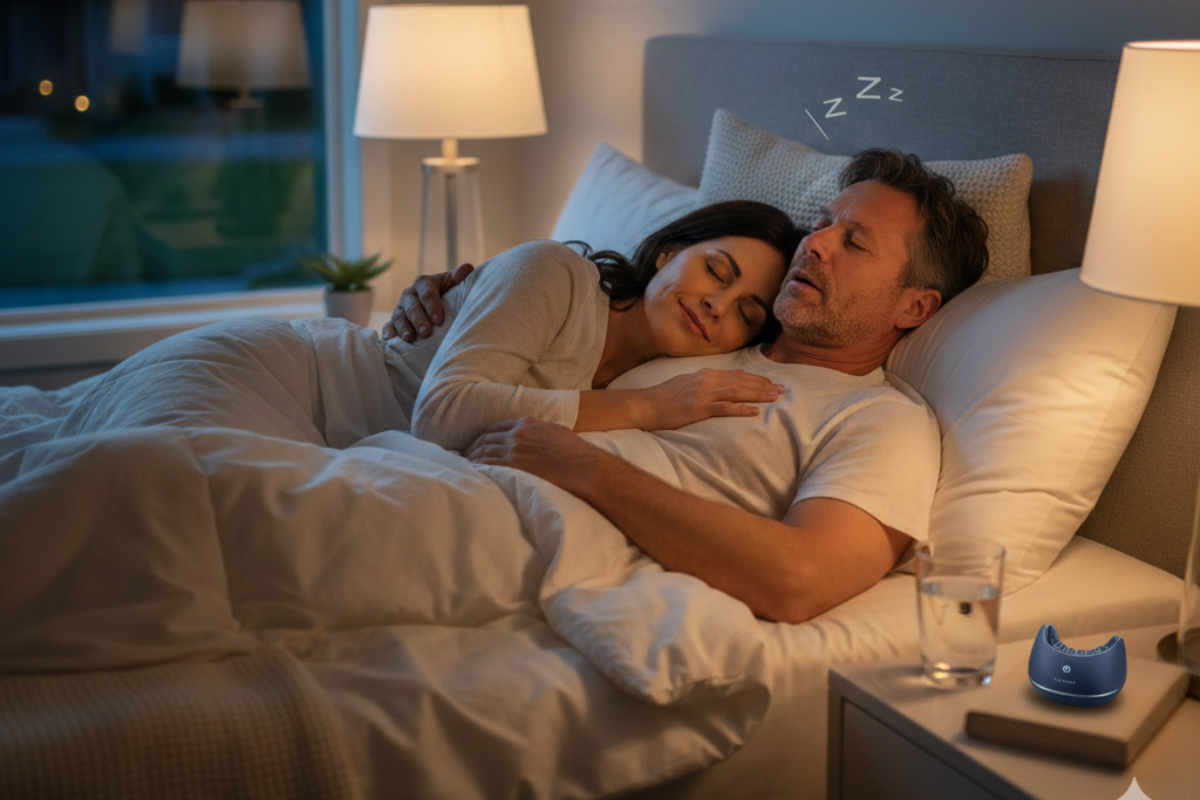Free Shipping - On Orders Over $99 (USA, Canada, UK, & AU)

Sleep Deprivation and Cognitive Performance: The Role of Creatine and Sleep Aids
October 18, 2024 3 min read
The Impact of Sleep Deprivation on Cognitive Performance
Research shows that sleep deprivation can significantly impair cognitive functions such as attention, memory, and problem-solving abilities. A meta-analysis conducted by Goel et al. (2009) found that acute sleep deprivation reduced cognitive performance across various tasks, leading to slower reaction times and decreased accuracy. Moreover, sleep deprivation is linked to decreased productivity and increased errors, which can have serious implications in high-stakes environments like healthcare and aviation (Killgore, 2010).Creatine: A Cognitive Enhancer?
Creatine is a compound often associated with physical performance, particularly in high-intensity sports. However, recent studies suggest that creatine may also have cognitive benefits, especially in the context of sleep deprivation. Creatine plays a crucial role in energy metabolism in the brain, and supplementation has been shown to enhance cognitive functions, particularly in tasks requiring working memory and quick decision-making (McMorris et al., 2007).A study by Rae et al. (2003) demonstrated that creatine supplementation improved cognitive performance in individuals under stress or fatigue. Since sleep deprivation is a form of stress, creatine could potentially offer a protective effect on cognitive functions during periods of insufficient sleep. Furthermore, creatine is known to increase brain energy availability, which may help mitigate some cognitive deficits associated with sleep loss.
Good Morning Snore Solution: A Sleep Aid
Another approach to improving cognitive performance in the face of sleep deprivation is addressing sleep quality. The Good Morning Snore Solution (GMSS) is an oral appliance designed to reduce snoring by repositioning the tongue to keep the airway open during sleep. Snoring can disrupt sleep quality, leading to fragmented sleep and increased daytime fatigue.A study published in the Journal of Clinical Sleep Medicine found that using oral appliances like the GMSS can significantly improve sleep quality and reduce symptoms of obstructive sleep apnea (O'Sullivan et al., 2016). Improved sleep quality can enhance cognitive performance, as restorative sleep is essential for processes such as memory consolidation and emotional regulation.
Combining Strategies for Optimal Cognitive Performance
While individual strategies like creatine supplementation or using GMSS can be beneficial, combining both may yield even greater improvements in cognitive performance during periods of sleep deprivation. Supplementing with creatine could help offset the cognitive decline associated with lack of sleep, while improving sleep quality through the GMSS can ensure that the brain receives the restorative benefits of sleep.Conclusion
Sleep deprivation is a significant barrier to optimal cognitive performance. However, strategies like creatine supplementation and utilizing devices like the Good Morning Snore Solution may offer viable solutions to mitigate its effects. While further research is needed to fully understand these interventions, they present promising avenues for improving cognitive function in a sleep-deprived world.References
- Goel, N., Rao, H., Durmer, J. S., & Dinges, D. F. (2009). Neurocognitive consequences of sleep deprivation. Seminars in Neurology, 29(4), 320-339.
- Killgore, W. D. S. (2010). Effects of sleep deprivation on cognition. Progress in Brain Research, 185, 105-129.
- McMorris, T., Mielcarz, G., & Howard, A. (2007). Creatine supplementation and cognitive performance. Journal of Sports Sciences, 25(5), 577-586.
- O'Sullivan, M., et al. (2016). The effectiveness of oral appliances for the treatment of obstructive sleep apnea: A systematic review and meta-analysis. Journal of Clinical Sleep Medicine, 12(6), 839-849.
- Rae, C., et al. (2003). Oral creatine monohydrate and cognitive performance. Neuropsychology, 17(4), 648-655.
- Walker, A. M. (2017). Why We Sleep: Unlocking the Power of Sleep and Dreams. Scribner.
Also in Blog

Healthy Sleep Goals For 2026
December 22, 2025 6 min read

💨 Are Your Nighttime Breathing Issues Robbing You of Your Health and Your Energy?
December 12, 2025 3 min read
Breathing issues during sleep, collectively known as sleep-disordered breathing, are a major public health concern.

Is Your Snoring a Sign of Something More Serious? Unpacking the Science of Sleep
December 05, 2025 3 min read
When you snore, what's actually happening?
Join our Insiders Club
Every week you will receive specials, discounts, and giveaways.
Categories
- Better Sleep
- depression
- Fitness
- funny animal
- Global Citizenship
- health
- Mental Health
- mouthpiece
- nutrition
- pillow
- Productivity
- relationships
- sleep
- sleep apnea
- sleep deprivation
- Sleep Tech
- snoring
- snoring humor
- snoring jokes
- snoring sounds
- stop snoring
- StopSnoringStartLiving
- technology
- Tongue displacement
- travel
- video
- Young Adult

